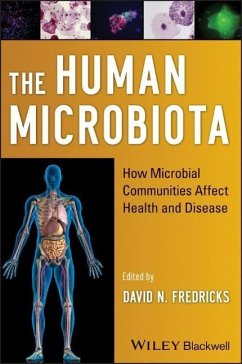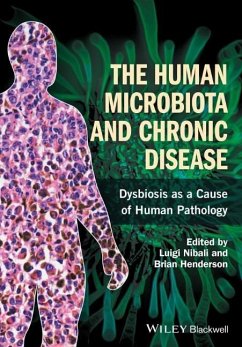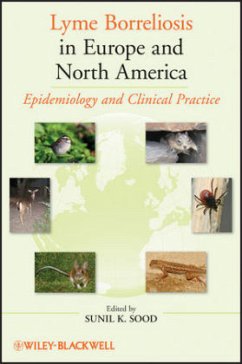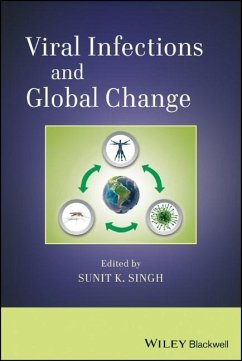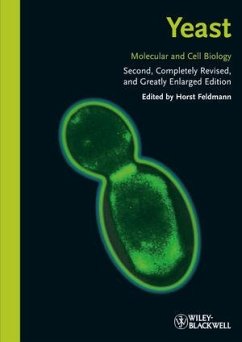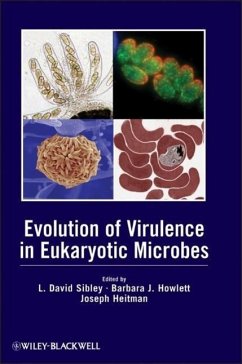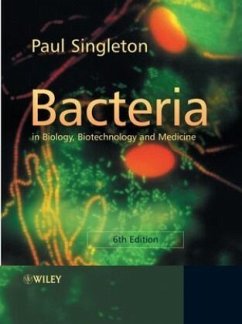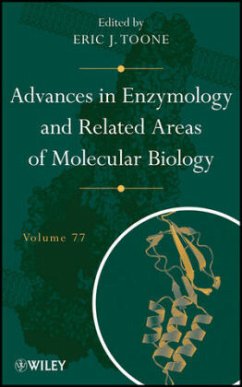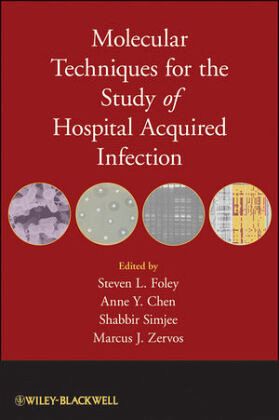
Molecular Techniques for the Study of Hospital-Acquired Infection
Versandkostenfrei!
Versandfertig in über 4 Wochen
165,99 €
inkl. MwSt.
Weitere Ausgaben:

PAYBACK Punkte
83 °P sammeln!
Latest findings, practices, and strategies to detect and control nosocomial infectionsNosocomial infections, also known as hospital acquired infections, represent a growing challenge to healthcare facilities around the world. Many nosocomial pathogens are becoming more and more resistant to treatment, resulting in higher morbidity, mortality, and cost. In fact, each year it is estimated that some two million patients develop a hospital-acquired infection in the United States, representing nearly 5% of all hospitalized patients.Molecular Techniques for the Study of Hospital Acquired Infection r...
Latest findings, practices, and strategies to detect and control nosocomial infections
Nosocomial infections, also known as hospital acquired infections, represent a growing challenge to healthcare facilities around the world. Many nosocomial pathogens are becoming more and more resistant to treatment, resulting in higher morbidity, mortality, and cost. In fact, each year it is estimated that some two million patients develop a hospital-acquired infection in the United States, representing nearly 5% of all hospitalized patients.
Molecular Techniques for the Study of Hospital Acquired Infection reviews the latest findings, practices, and strategies to support the development and implementation of effective, comprehensive programs to study and control hospital acquired infections. It focuses on the application of molecular techniques, enabling hospitals to incorporate these state-of-the-technology techniques into their infection control programs.
Key topics include:
Characteristics of healthcare settings that allow for the development and spread of nosocomial pathogens
Implementation of effective infection control programs
Epidemiological methods to study nosocomial disease
Elimination of pathogens and the development of resistance to treatment
Molecular techniques to study hospital acquired infections and their application in characterizing important Gram-positive, Gram-negative, and fungal pathogens
Contributions come from leading international experts in nosocomial pathogen detection and control. These contributions are based on the authors' own firsthand experience combined with a thorough review and analysis of the current literature. References at the end of each chapter enable readers to explore each individual topic in greater depth.
Molecular Techniques for the Study of Hospital Acquired Infection is highly recommended as a guide for hospital infection control programs. Moreover, it serves as a text for courses in infection control and the population biology of nosocomial infection. In particular, the book's unique clinical perspective helps readers minimize nosocomial infections by developing a coordinated approach to infection control, laboratory methods, and clinical practices.
Nosocomial infections, also known as hospital acquired infections, represent a growing challenge to healthcare facilities around the world. Many nosocomial pathogens are becoming more and more resistant to treatment, resulting in higher morbidity, mortality, and cost. In fact, each year it is estimated that some two million patients develop a hospital-acquired infection in the United States, representing nearly 5% of all hospitalized patients.
Molecular Techniques for the Study of Hospital Acquired Infection reviews the latest findings, practices, and strategies to support the development and implementation of effective, comprehensive programs to study and control hospital acquired infections. It focuses on the application of molecular techniques, enabling hospitals to incorporate these state-of-the-technology techniques into their infection control programs.
Key topics include:
Characteristics of healthcare settings that allow for the development and spread of nosocomial pathogens
Implementation of effective infection control programs
Epidemiological methods to study nosocomial disease
Elimination of pathogens and the development of resistance to treatment
Molecular techniques to study hospital acquired infections and their application in characterizing important Gram-positive, Gram-negative, and fungal pathogens
Contributions come from leading international experts in nosocomial pathogen detection and control. These contributions are based on the authors' own firsthand experience combined with a thorough review and analysis of the current literature. References at the end of each chapter enable readers to explore each individual topic in greater depth.
Molecular Techniques for the Study of Hospital Acquired Infection is highly recommended as a guide for hospital infection control programs. Moreover, it serves as a text for courses in infection control and the population biology of nosocomial infection. In particular, the book's unique clinical perspective helps readers minimize nosocomial infections by developing a coordinated approach to infection control, laboratory methods, and clinical practices.



